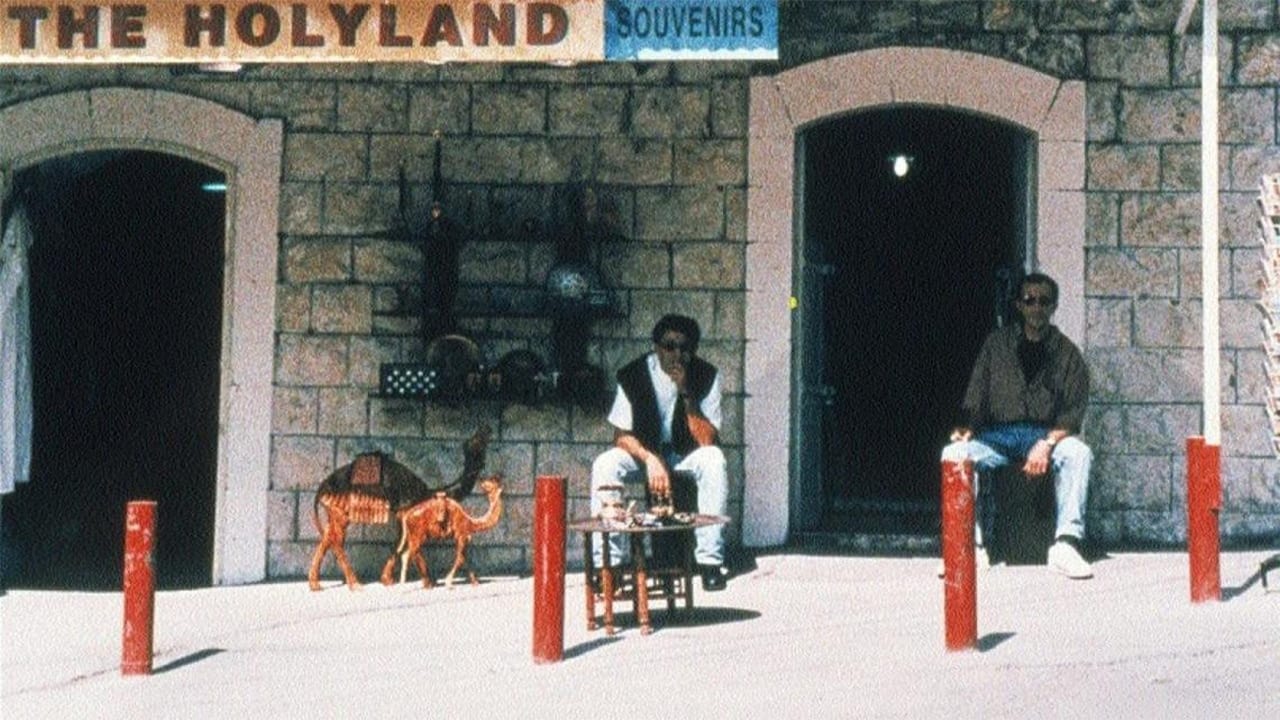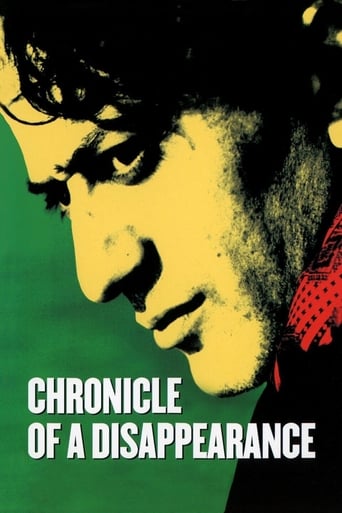

Elia Suleiman returns to his home after a long absence, and gives a portrait of the society he left behind - that of Israeli Palestinians living among Jewish Israelis in Israel. Suleiman's Israeli Palestinians are somewhat miserable, squabbling people who seem to be accustomed or accepting of this fate. His Israelis are racist and his Israeli security forces are dumb and dumber. Jewish Tel Aviv and Palestinians Jericho, visited during his trip, receive so little attention, as to attest to their insignificance. Instead, its all about Jerusalem, where the two societies collide head on. As in Divine Intervention (which came out later) - the Palestinians receive some redemption only in fantasy. The scene where a Palestinian woman manages to rid Jerusalem of Israeli policing forces by use of a walkie talkie was pure brilliance. There are other brilliant scenes in this movie - however, the film does not flow and never really follows a set rhythm. However, it is highly recommended for those scenes that attest to the directors brilliance
... View MoreDo you think it's easy to make a film about palestino-israelian relationships which is not full of violence, hate and bitterness ? Well, Elia Suleiman did it. His camera is his eye, and he is just not commenting what he is seeing (how could one comment the Middle East ?)But his silence is eloquent enough ! Dear Dzong from Washington, we're not more in the Middle Ages, and today, a piece of art doesn't necessary need characters and dialogues to be valuable and beautiful. This is a film full of a kind of a nostalgy, a longing for a lost peace, a walk in a someone's childhood. I found it excellent.
... View MoreFirst of all, let's get one thing straight....I love foreign films. I even love Iranian films (at least I loved Colours of Paradise). And yet I didn't think I would ever get through this movie and it's not that long. I would have no idea what it was about if I hadn't read the back of the box.In brief, the "movie" consists of a long series of interminable vignettes, usually with no dialogue, no character development, and no point. Every 20 minutes or so (seems like longer), there is an actual scene with some interesting characters who for the most part are not heard from again. Then there's some nonsense about a Palestinian woman who gets hold of a Police CB. I was looking forward to seeing a Palestinian film to see what a Palestinian director would have to say...Not necessarily about the Israeli-Palestinian conflict (though that would be interesting too...) but about SOMETHING, damn it! This film was a huge disappointment. Don't watch it unless you are expecting a documentary, and a dull one at that.
... View MoreKind of a sleeper, but if you like "not Hollywood" -- Children of Heaven (Iranian), My Life as a Dog, etc. -- give this a try. The movie is a series of vignettes or tableaux, some "real life," some fantasy. Often the two intertwine and you can never be sure which is which. On the surface it's about the writer/director's return to his native Palestine, Jerusalem. It's not a documentary and it's not overtly political, but on some level it's both. "I think everything is personal. Everything is political." (Suleiman)The director himself describes the work as "a very 'Iranian film' because of its crossing of documentary with narrative approach." (Quoted from a post (#30963) by Kia Fri Jul 30 15:34:03 1999 on the Message board of The Jewish-Palestinian Encounter Site. What I like best about this movie is the slices of Palestinian life, the deliberately over-slow pace as an antidote to the daily Middle-East news: the director and a friend sitting timelessly in front of a "Holy Land" trinket shop, a bunch of guys night fishing on the Mediterranean or Dead Sea, a long and slow descent down an old road into Jerusalem to the sound of an ancient/modern song of reconciliation, scenes from the Suleiman household, peeling garlic and small talk, Mr. Suleiman Sr. arm wrestling the local youth, etc. These things give the movie a timeless beauty. Politically -- although as Suleiman points out it can't really be separated from the personal -- a French tourist/friend? pontificates to the director about the origins of Mideast violence, perhaps framing our "Orientalist expectation from audiences in places like Europe and the States." (From Invisible City - Coco Fusco talks with director Elia Suleiman about Chronicle of Disappearance. In another scene, a Palestinian women with "good Hebrew" tries to find an apartment. She can "pass" on the phone, but her name is a give-away. And in a series of scenes from a Palestinian theatre piece, the dance is so Jewish one wonders how such a wide gulf has come to separate the two communities. (For an interesting take on Palastinian-Iranian-Jewish 'resemblances', see further discussion from the Message board of The Jewish-Palestinian Encounter Site.) No Violence. A good film to generate discussion amongst family members. Ideal (essential?)for deconstructing the nightly news view of the world.
... View More